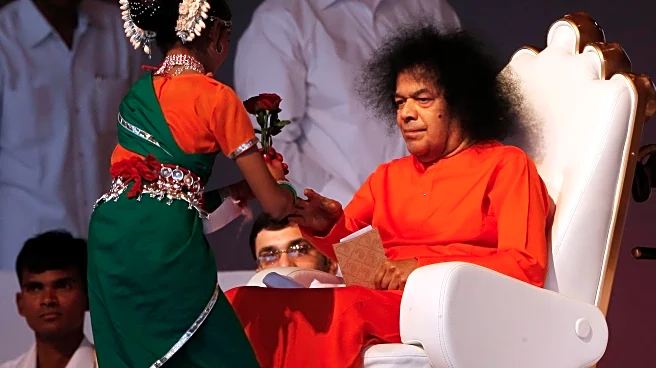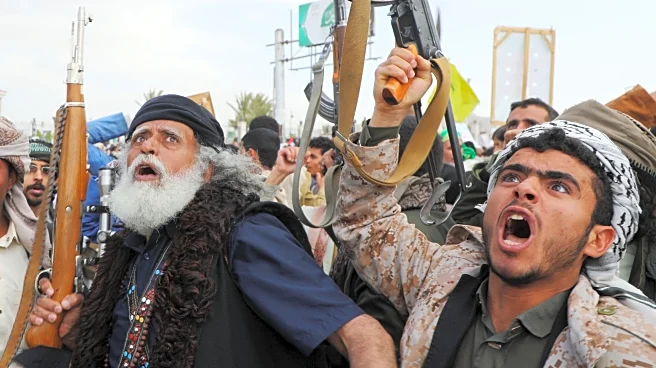What is the story about?
What's Happening?
FC Kairat, a football club based in Almaty, Kazakhstan, has qualified for the 2025/26 UEFA Champions League. This marks their debut in the Champions League proper, making them the easternmost participant in the league phase. Their qualification was secured by winning the 2024 Kazakhstan Premier League, which allowed them to enter the tournament in the first qualifying round via the Champions Path. Kazakhstan's lower country coefficient, determined by UEFA based on club performances in European competitions, facilitated their entry. The club's journey from the first qualifying round to the league phase is considered a significant achievement.
Why It's Important?
FC Kairat's participation in the UEFA Champions League is a notable milestone for Kazakhstan's football scene, potentially boosting the country's visibility in European football. This debut offers financial benefits and international exposure, which can enhance the club's future prospects and attract talent. The achievement underscores the importance of UEFA's country coefficient system, which allows clubs from smaller football nations to compete on a larger stage. This development could inspire other clubs in similar regions to aim for international competitions, fostering growth in the sport.
What's Next?
FC Kairat will face prominent teams such as Real Madrid and Arsenal in the league phase, providing them with opportunities to showcase their capabilities against top-tier European clubs. Their performance in these matches will be crucial for their reputation and financial gains. The club's management and players will need to prepare strategically to compete effectively. Success in the Champions League could lead to increased investment and development in Kazakhstan's football infrastructure.
Beyond the Headlines
The participation of FC Kairat in the Champions League highlights the evolving dynamics of European football, where clubs from less traditional football nations are gaining opportunities to compete at high levels. This shift may lead to a more diverse and inclusive football landscape, encouraging UEFA to continue supporting smaller leagues. The cultural exchange and international exposure resulting from such participation can have long-term benefits for the sport's development in Kazakhstan.















